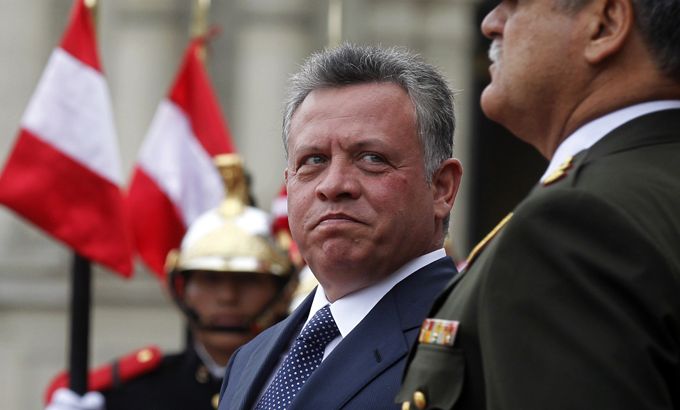
Jordan: A kingdom divided?
With political strife and turmoil on Jordan’s doorstep, we discuss the future of the Hashemite kingdom.
King Abdullah of Jordan has dissolved the country’s parliament, paving the way for elections expected early next year. Under Jordan’s constitution cabinet members must resign within a week of parliament’s dissolution – that means the king will be appointing another prime minister – his fifth since the Arab Spring began.
|
“I think it was a very wrong decision – at least the timing was not right. On the eve of this public movement, they declared that not the sacking of the parliament but announcing that there will be elections while there was no consensus on the electoral law. How can you ask people to participate in a game when they have not agreed on the rules?“ – Toujan al-Faisal, a former Jordanian MP |
The king’s announcement was made on the eve of a rally organised by the country’s main opposition group, the Muslim Brotherhood, in the capital Amman after Friday’s prayer. It was dubbed an effort to “rescue the nation”.
The group is demanding reforms that would include the monarch’s powers to be curtailed; in which the prime minister is elected rather than appointed by the king.
They also want a fairer distribution of seats in parliament that would more accurately represent the country’s different groups and they want an end to the long-standing corruption.
The Muslim Brotherhood has said it will boycott polls until its demands are met.
Last month, King Abdullah said a decision by the Islamists to boycott the vote is absolutely wrong.
“As constitutional monarch, my mandate is to be the umbrella for all political groupings and all segments of our society, and as part of that responsibility, I am telling the Muslim Brotherhood that they are making a tremendous miscalculation. So I am telling the Muslim Brotherhood, you have a choice: to stay in the street or to help build the new democratic Jordan,” he said.
With political strife and turmoil on Jordan’s doorstep, what does the future hold for the Hashemite kingdom: Reform, revolution or perhaps neither?
Inside Story, with Hazem Sika, speaks to Toujan al-Faisal, a former member of the Jordanian parliament; Ian Black, the Middle East editor at The Guardian; and Adnan Hayajneh, a professor of political science at the Hashemite University.
|
“For the last two years people have been looking to those parts of the Arab world ‘where the dog has not barked’, as it were, where there have not been mass protest or uprisings or revolutions and Jordan has been a particularly interesting example of this – because although there have been quite a few signs of unrests and demands for reform and for change – protests have been fairly limited and they have been very successfully contained. I don’t think there has been a single fatality as a result of the protests that have taken place in Jordan.” Ian Black, a Middle East editor at The Guardian |